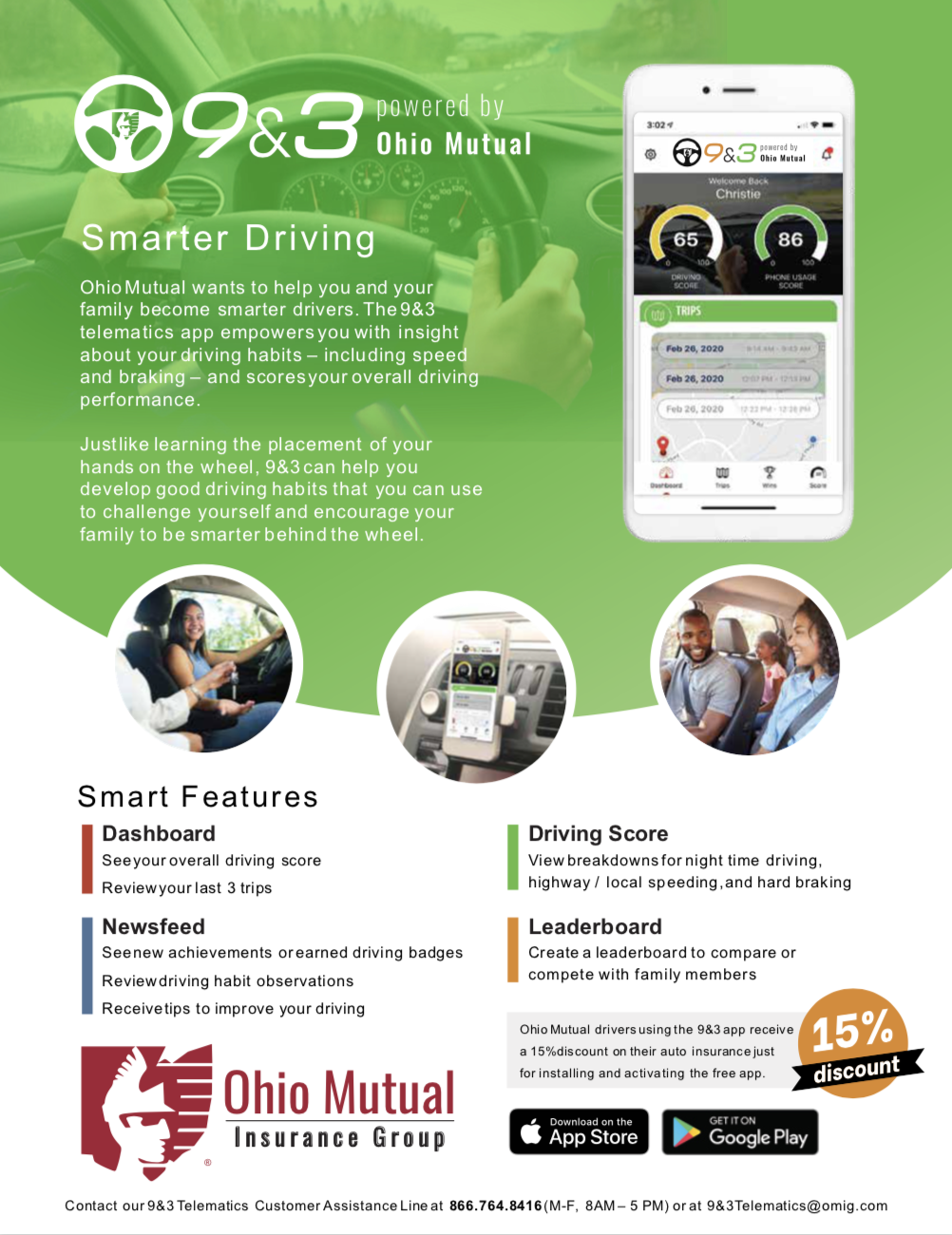For many parents of teenagers, that sweet 16 party doesn’t feel so sweet. That’s because 16 is the birthday when teens can start driving in Ohio. And that means you have to figure out your teen’s auto insurance situation.
Is it going to cost an arm and a leg? Will teen auto insurance cover enough to keep my kid protected? There are plenty of questions around this time and the experienced team of independent insurance agents at Wallace & Turner have written this guide to provide answers about adding your teen to your auto insurance policy in Ohio.
Read on to learn everything you need to know. And if you’re ready to get your teen insured, reach out to our team.
When Should I Add My Teen to My Auto Insurance Policy?
In Ohio, teens can apply for a driver’s permit when they are 15 years and 6 months old. Is that the age when you need to add them to your auto insurance? Not exactly. That’s because you or another license-holding legal guardian will have to be in the passenger seat at all times until your teen is able to trade that permit in for a full-blown driver’s license, so your car will be insured through your presence in the vehicle.
When it comes to the timing of adding your teen to your auto policy, the exact age of your teen matters less than their legal driving status. Once your teen gets their full driver’s license and is ready to start driving the family SUV or even a car you’re buying for them, it’s time to start thinking about getting your teen insured.
How Much Does It Cost to Add a Teen Driver to Insurance?
Putting your teenager on your car insurance policy can double your rates. According to CarInsurance.com rate data, your rates will increase by 102% on average when you add your teen.
Wallace & Turner Producer Ben Galbreath recently spoke with CarInsurance.com to explain what parents need to know about adding a teen driver to their auto insurance.
“Teenage drivers are inexperienced drivers who are less aware of their surroundings and have a tendency to drive too fast and less responsibly, which makes it more likely that they will have a claim,” Ben said.
In Ohio, the average premium cost for full-coverage auto insurance without teens is $960 per year. But adding teens drives that average up to $1,881 per year, according to data from CarInsurance.com.
Do I Have to Add My Teen to My Auto Insurance in Ohio?
To comply with Ohio’s Financial Responsibility Law, your teen has to be insured if they are going to drive on their own. However, that doesn’t necessarily mean that they have to be insured under your policy.
Teens can purchase their own separate policies, but most Ohio families end up insuring teens under the parents’ auto policy because the premium is typically much more affordable that way. Even if you want your teen to pay for their own insurance, it might be wise to consider having them pay for their portion of the family premium rather than paying for their own policy outright.
Insurance Considerations for Parents of Teen Drivers
Adding your teen to your auto insurance policy doesn’t have to be a source of stress in your life. If you plan ahead, consider the suggestions below and speak with your insurance agent at Wallace & Turner so you can come out of this with a fully insured teen and a lot less stress than most parents have to go through.
Consider High Liability Limits for Teen Drivers
Due to inexperience, immaturity, distractions or some combination of these factors, most teens are more likely than the average adult to get into a car accident. Even if you have full faith in your teen’s maturity and decision-making skills, all it takes is a momentary lapse in judgment, and your family could face massive financial liability.
That’s why it’s a good idea to take a second look at the liability limits of your auto insurance policy before you add your teen. This might be a great time to consider getting higher liability coverage or even an umbrella policy.
Reduce Teen Insurance Premium Hikes by Adjusting Deductibles
There’s no question: Car insurance premiums go up when you add a teen to a policy. It’s a difficult fact for many families to face, but you can adjust parts of your policy to mitigate the impact of the increased monthly costs.
More specifically, you may be able to get a higher deductible that will lead to reduced monthly premiums. Keep in mind, of course, that this means you will be on the hook to pay more in the event of an accident. But for some families, the benefit of paying less each month outweighs the risk a higher deductible may pose. Your insurance agent can help you decide which approach is best for your family.
Take Advantage of Teen Driver Discounts
Many insurers offer discounts to help families add teen drivers to their policies without breaking the bank. For example, some policies offer discounts for good grades. Others will discount your monthly premiums if your child takes a driver’s education or defensive driving course. Ask your insurance agent to help you find the best Ohio teen driver discounts.
Look Into Usage-Based Insurance for Your Teen
Usage-based insurance (UBI) is a relatively new auto insurance policy model that can save drivers money if they drive safely. The amount drivers can save varies widely, but the listed amounts tend to fall somewhere between 10% and 15%.
How does UBI work? Your insurer measures data points that suggest how safe your driving habits are, such as collisions, speeds, mileage and similar factors, using your car’s own metrics systems or a device that rides along with you. Based on those measurements, the insurer offers a discount on your premiums.
In other words, if your teen is a safe driver, UBI may be a great way to reduce the cost of adding your teen to your auto policy. Your insurance agent at Wallace & Turner can help you find the right UBI policy for your family.
Seek Out Safe Cars
To reduce premium costs, insurance agent Ben Galbreath recommended purchasing an older model vehicle for your teen to drive.
“A sedan is usually best to lower your costs versus a sports car or SUV,” Ben said in an interview with CarInsurance.com. “I recommend covering the teen for liability only until they are about 20 years old, which is the age when coverage rates tend to come down.”
When deciding which household car the teen should be attached to, Ben commented: “Most insurance companies today are moving away from insurance rating based on the car, but for those that still do, the teen should be assigned to the car with the lowest value.”
Promote the Best Teen Auto Insurance: Safe Driving
The best way to prevent injuries, financial setbacks and legal liability is avoiding accidents in the first place. And the best way to do that is to teach your teen to drive safely. Of course, insurance is still absolutely necessary and required under Ohio law, but it goes without saying, the more accidents you can avoid, the better.
Before Your Teen Hits the Road, Call Wallace & Turner
Adding your teen to your auto insurance policy in Ohio doesn’t have to be painful. There are plenty of ways to reduce the impact of increased premiums while still making sure your teen is covered and safe.
We hope this article has provided some helpful tips for adding your teen to your auto insurance, but we saved the best tip for last: If you have questions about purchasing a teen car insurance policy in Springfield or Urbana, Ohio, contact Wallace & Turner online, by phone at 937-324-8492 or via email at info@wtins.com.













